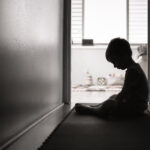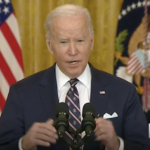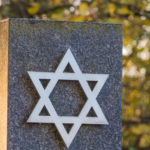 [1]
[1]BEIJING (BP) – China falsely claimed Oct. 13 to protect religious freedoms after U.S. Secretary of State Marco Rubio urged the country’s government to release several pastors arrested in house church raids.
“The Chinese government governs religious affairs in accordance with law, protects the religious freedom of the citizens and the normal religious activities,” Foreign Ministry spokesman Lin Jian said Monday at a regular briefing, MSN reported. “We firmly oppose the U.S. interfering in China’s internal affairs with the so-called religious issues.”
China persecutes Christians and other religious groups through an intensive campaign to control religious activities and communication, claiming churches oppose the government, several religious liberty watchdog groups have reported with extensive evidence.
Rubio called for the release of an estimated 20 house church pastors and leaders arrested in at least seven cities since Oct. 10, CSW reported, as the Chinese Communist Party (CCP) raided several locations of Zion Church, an unregistered Protestant congregation.
“We call on the CCP to immediately release the detained church leaders and to allow all people of faith, including members of house churches, to engage in religious activities without fear of retribution,” Rubio said in an Oct. 12 press release [2], naming Senior Pastor Ezra Jin Mingri among those arrested. “This crackdown further demonstrates how the CCP exercises hostility towards Christians who reject Party interference in their faith and choose to worship at unregistered house churches.”
The exchange comes as U.S. President Donald Trump spars with China [3] over trade policy, threatening a 100 percent tariff on China in addition to a 55 percent tariff already in place. Trump threatened the increase after China announced export controls on rare earths, effective in November. China holds 49 percent of the world’s rare earths, including 17 metallic elements considered crucial for modern technology and energy, NBC News reported.
Rubio called for the release of leaders after China initially arrested 30 leaders, with about 20 remaining in custody as recently as early Oct. 14, CSW reported.
“CSW sources suggest these arrests form part of the largest nationwide crackdown on house churches in decades, and many Chinese house church leaders have openly expressed support for Zion Church despite facing significant pressures themselves,” CSW said in a press release. “One church member also pointed out that repression targeting house churches typically intensifies whenever relations deteriorate between China and the West.”
Sean Long, a Chinese Zion Church pastor studying in the U.S., told the Associated Press the leaders may face charges of “illegal dissemination of religious content via the internet,” although it’s not currently known whether the pastors are charged with any infraction.
“This is a very disturbing and distressing moment,” the AP quoted Long. “This is a brutal violation of freedom of religion, which is written into the Chinese constitution. We want our pastors to be released immediately.”
Zion Church has perhaps 5,000 members who worship at 100 sites across 40 cities, Long told AP, with services held in apartments, restaurants and even karaoke bars. Jin was handcuffed and arrested the morning of Oct. 11 after officers raided his home in Behai, Guangxi Province the previous evening and searched the home throughout the night, CSW reported.
CSW’s CEO Scot Bower also urged China to release the pastors and leaders.
“CSW echoes calls for the immediate release of Pastor Jin and the other leaders and members of Zion Church who were detained in this latest crackdown,” Bower said in a press release. “We call on the Chinese Communist Party to cease its harassment of unregistered churches and religious groups, and to guarantee to all religious and belief communities, in law and in practice, the right to publicly manifest their religion or belief in worship, observance, practice and teaching without interference.”
China’s religious freedom policies are among the worst in the world, the U.S. Commission on International Religious Freedom said in its 2025 Annual Report [4]. Through its “sinicization of religion” policy, China requires the “complete loyalty and subordination of recognized religious groups to the CCP, its political ideology, and its policy agenda,” USCIRF wrote in its report.
China is widely condemned for its stringent restrictions and persecution including unwarranted arrests, forced disappearances, high-tech surveillance of churches, suppressed speech, removal of crosses, confiscation of religious materials and the criminalization of Bibles and evangelism.
The U.S. State Department as recently as 2023 named China a Country of Particular Concern for systematic, ongoing, and egregious violations of religious freedom, as defined by the International Religious Freedom Act.








